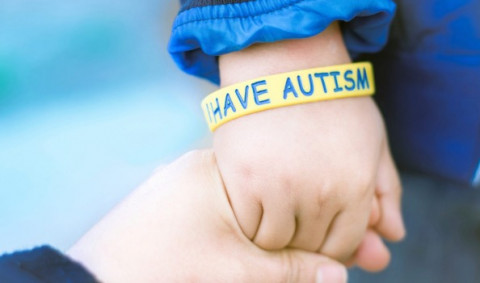
Jill Margo
Parents who reproduce later in life are more likely to have children who develop autism disorders, according to a large Danish study.
Over the past 30 years numerous studies assessing the effect of late reproduction have produced variable results, often due to substantial differences in study design.
Now researchers from the Copenhagen Centre for Social Evolution have used a very large sample to try to settle the issue.
They conducted a deep analysis of 1.7 million children born in Denmark between 1978 and 2009.
Published in Evolution, Medicine, and Public Health, their study followed the children to the age of 30 and found 6.5 per cent had been diagnosed with autistic or schizophrenic disorders.
The researchers, who include Dr Sean Byars of the University of Melbourne, compared the children's risks based on maternal and paternal age, and parental age difference.
They found late reproduction was not associated with increased risk for schizophrenia but was with autism.
The highest increases and decreases that could be related to these factors added between 0.2 and 1.8 per cent to the absolute risk. In terms of relative risk, however, they represented changes of 76 to 104 per cent.
While maternal and paternal age increased risk of most autistic disorders, this effect was magnified in offspring of very old fathers.
There were anomalies. While discrepancies in parental age added to risk, at a point the higher risk for older fathers appeared to be compensated if the mother was much younger.
In contrast, children of young parents had reduced risks of autism.
Today, the average age for becoming a first-time parent in Denmark is 29.1.
There is no accepted explanation for autism which is a neuro-developmental disorder that manifests in markedly abnormal social interaction, communication ability, patterns of interests and patterns of behaviour.
The numbers in the Danish study were scaled against the absolute risks of being diagnosed with autism in Denmark, which is 3.7 per cent.
In the absence of a direct medical explanation, the authors looked for evolutionary interpretations.
"Natural selection has shaped how parents, and particularly mothers, allocated their reproductive investments best in the face of uncertain conditions during our prehistory and well into modern historical times," said Professor Jacobus Boomsma, the senior author of the study.
"It was not very long ago that most mothers had their first child around the age of 20 and went through 10 pregnancies. Our modern reproductive patterns are thus a poor match to what humans are likely to be naturally adapted to. Our evolutionary interpretations suggest how we can possibly understand recently increased mental disease risks that have no direct medical explanation."
A previous unrelated study suggested advanced paternal age could be associated with greater risk for autism because the older men are, the greater the likelihood of them having experienced genetic and epigenetic changes that affect their offspring.
see also: